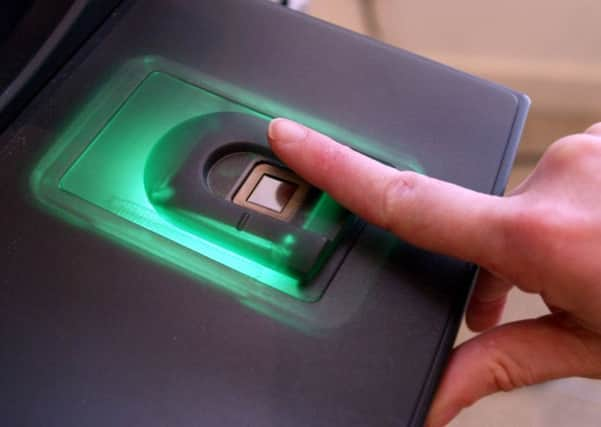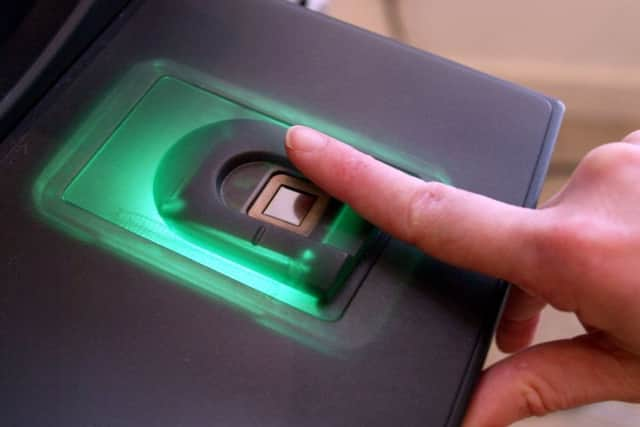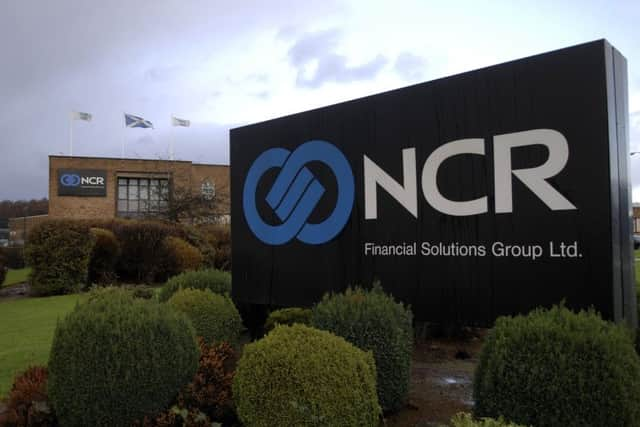Collaboration '˜key to unlocking fintech potential'
This article contains affiliate links. We may earn a small commission on items purchased through this article, but that does not affect our editorial judgement.


Joe Gallagher, general manager of software at the group, said that financial technology, or fintech, “may be a new term, but the financial industry and technology go back a long time”.
He said: “NCR as a corporation is over 130 years old and you can’t do that without re-inventing yourself along the way. There aren’t many technology companies on the New York Stock Exchange that have that sort of tenure.”
• READ MORE: Fintech news


Advertisement
Hide AdAdvertisement
Hide AdNCR started in the retail business, founded in 1884 by John Patterson as the National Cash Register Company, maker of the first mechanical tills.
Gallagher admitted that the evolution of self-service check outs has highlighted the reluctance among some consumers to embrace the latest technology, “but people get into it”.
He added: “When ATMs started it was about getting cash onto the street, and that’s still very much its primary purpose. But now it’s becoming an electronic ‘point of presence’ for an interaction between the bank and the consumer.
“We don’t see it so much in the UK, but in different countries you can do charity donations and in Asia an example you can get over 100 different transactions on an ATM, whereas we typically have five. You can buy airline tickets in India, pay speeding fines in Singapore, so they really have evolved in a big way.”


When asked why the UK has been slower to adopt a wider range of ATM services than other countries, Gallagher said: “It’s beginning to happen. A lot of technology innovations on the financial side have come from Asia and they sweep their way through. It’s partly culture, but also some parts of Asia have had to invest more recently in their infrastructure so they can jump ahead. We’ve got an older infrastructure so it takes us that bit longer to change over to a new technology.”
Gallagher pointed to the rising use of “biometrics” such as voice, fingerprint or facial identification, and suggested these would eventually replace magnetic cards in ATMs, because cards can be copied but fingerprints are unique and can be combined with other identifiers to “double down” on security.
He added: “It could be interesting to go to your mobile app or ATM to see what your balance is, but what’s your true balance? The bank knows what’s coming in and out of your account, so before you take out or deposit money, it might be interesting to know that your true balance in a few days’ time is going to be different, By using fintech, banks can get back to their core business, which is advising.”


Advertisement
Hide AdAdvertisement
Hide AdGetting the balance right between security and making life easier for customers is a “constant challenge”, Gallagher said, “and it’s at the core of what NCR does”. The group processes more than 700 million secure financial transactions around the world every day.
Scotland has a “huge” opportunity in the form of fintech, he said, adding: “Innovation is in our DNA. We still have a very strong banking industry – despite the bumps of the last few years we have huge knowledge in the financial industry. So bring these together and that’s a great combination to innovate in that space.
“Government and organisations such as Scottish Enterprise have a part to play, and the banks are opening up fintech hubs. Collaboration is the key to make it happen.”
He added: “But banks need to re-invent themselves in the same way that we have, and that way they can do that is collaboration with the technology companies. There really is the potential for a win-win in that environment.”


Open standards are also an important element in the adoption of fintech, Gallagher said, pointing to the widespread adoption of Transport for London’s Oyster card because it is easy to use across different modes of public transport.
In contrast, looking at digital “wallets”, he said there are many competing systems from the likes of Apple, Android, Samsung and card providers such as Mastercard and Visa: “And if they don’t interact with each other in open standards, they inhibit adoption in my opinion.
“Open standards help mass adoption and that makes a success for everyone.”